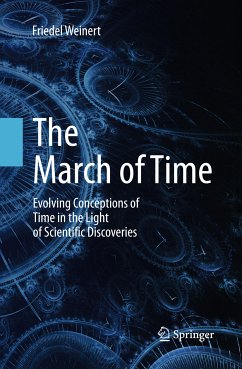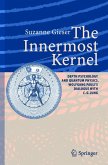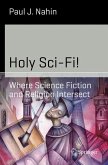Dieser Download kann aus rechtlichen Gründen nur mit Rechnungsadresse in A, B, BG, CY, CZ, D, DK, EW, E, FIN, F, GR, HR, H, IRL, I, LT, L, LR, M, NL, PL, P, R, S, SLO, SK ausgeliefert werden.
"This book is a historical and scientific argument against the popular view held among physicists that time is not real. Weinert (Univ. of Bradford, UK) considers the arguments based on cosmology, stasis, and symmetry, and does an excellent job of showing that the conclusion of the existence of an atemporal world is not decisive. ... Anyone interested in the philosophy or physics of time would enjoy March of Time. Summing Up: Highly recommended. Upper-division undergraduates and above; informed general readers." (E. Kincanon, Choice, Vol. 51 (2), October, 2013)









